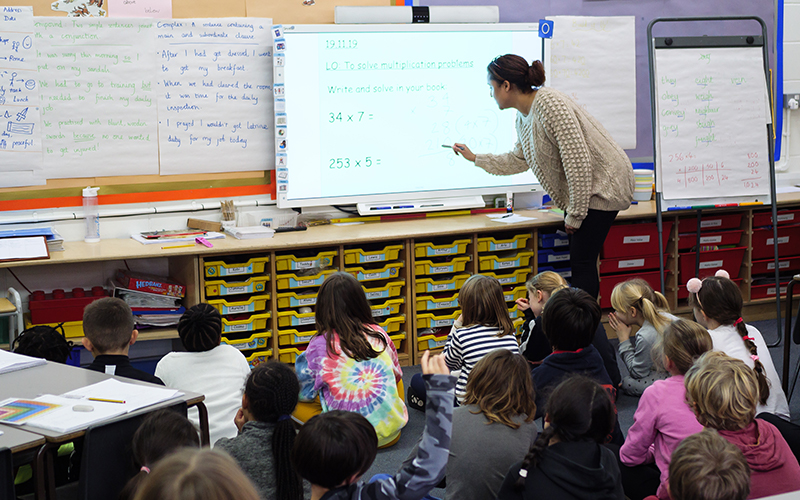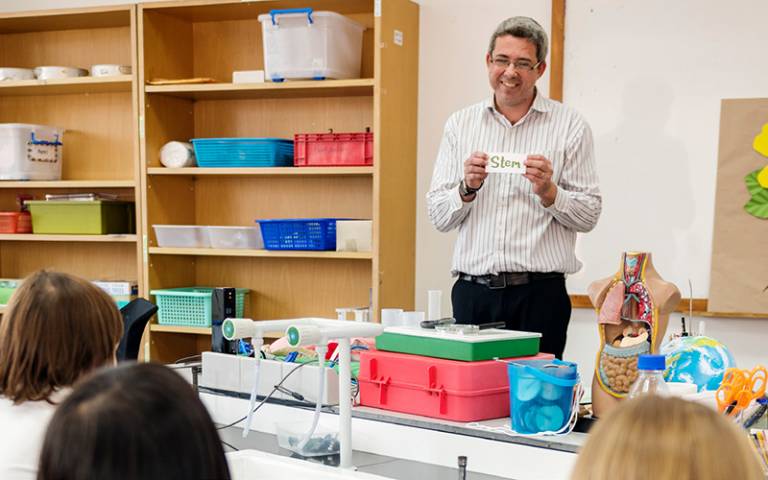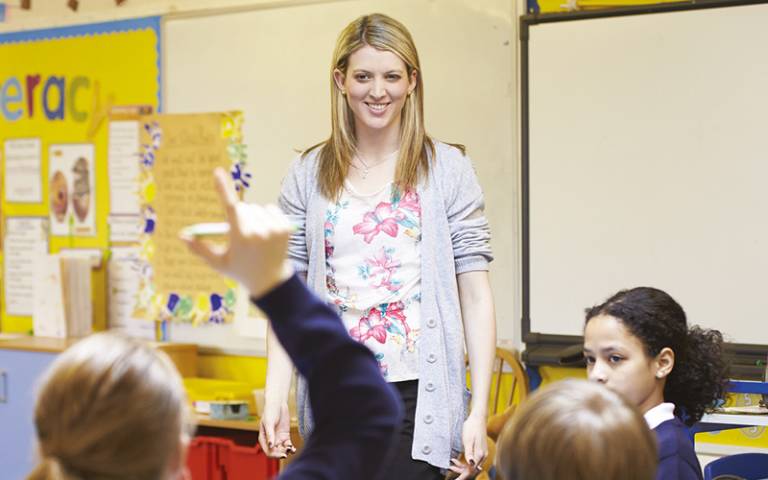Primary assessment in turbulent times
How to address areas of concern for teachers around statutory assessment.

9 October 2020
This briefing note considers the place for statutory testing in primary schools during 2020-21, in the light of the COVID crisis ¹. The English system of primary statutory assessment, culminating in SATs tests in Year 6, was suspended during the 2020 lockdown. Yet many questions remain about how primary assessment should resume, given that COVID-19 may continue to cause disruption to children’s learning in both the short to medium term. Our research project identified three issues of concern for teachers to which we turn our attention here:
- Whether a quick reintroduction of statutory tests will help or hinder pupils in making progress in the coming year
- Whether statutory tests can accurately be used as school accountability measures, in the coming year
- Whether more fundamental flaws in the current testing and accountability regime have been revealed by the COVID crisis and require urgent reform.
Key findings
Project findings are based on a survey of 1,653 primary school teachers in England, conducted through Teacher Tapp between 27-29 May 2020; a follow up survey conducted by ILC between 3-31 July 2020; in-depth interviews with teachers, head teachers and system leaders; documentary evidence of the wider public debate on education and COVID-19; and a rapid evidence assessment of the relevant literature.
Finding 1: Pressure to meet nationally-set targets will distract schools from responding appropriately to the diversity of pupils’ needs
The 2020-21 academic year will be unlike any other, given the long period when most primary children did not attend school between March and September 2020. Different communities have experienced the pandemic in diverse ways. Many schools have put recognising and adapt to these differing needs at the heart of their plans for recovery.
Teachers are well aware that children’s wellbeing provides the necessary foundations for learning. Over 70% of our respondents identified children’s wellbeing as their top priority in welcoming children back at the start of the academic year. They recognise that pupils will need time to settle back into school after a period of disruption. They know that some will have experienced very difficult circumstances at home which will require additional support. External pressure to focus on preparing children for statutory assessments first and foremost is at odds with these more immediate goals. As one teacher commented,
As professionals I truly believe we need to do what we know is right for our pupils, whatever the government pressure might be.
Administering a Year 1 Phonics Screening Check in the autumn term to children now in Year 2 risks distorting teaching priorities. Teachers can far more accurately identify and respond to individual pupil needs using their skills in diagnostic assessment; and do so at a time better suited to the pupil.
We can monitor progression and ‘catch up’ without the need to formally test, … which might not actually show more than the child’s current ability to cope with a test.
The primary assessment timetable and the assumptions it is built on urgently need review. We know that preparing Year 6 for Key Stage 2 SATs will put intense pressure on a year group which has already missed six months of learning and may miss more as disruption continues. Such pressures will be most acutely felt in our most disadvantaged communities, where the impact of COVID has been deepest. The government rightly abandoned statutory assessments in 2020. This same flexibility should be used to adapt the statutory test requirements primary schools are expected to meet in the coming year.

Finding 2: Testing and accountability arrangements will not deliver fair judgements during a disrupted year
There are inequalities in how school closure has affected different communities. In our survey, 77% of our respondents agreed that: “If testing and inspection goes ahead as normal next year, schools serving the most disadvantaged communities will be unfairly penalised” rising to 84% working with the most disadvantaged communities (Moss et al, 2020).
During lockdown our data show that schools in the most disadvantaged areas have had to commit more time and resources to mitigating the effects of poverty and hardship. 51% of teachers in the most deprived schools were helping keep children adequately fed, versus just 18% of teachers in the least deprived schools (Moss et al, 2020). More pupils in deprived areas were without access to remote learning and relying more on teachers delivering hard copy resources. All teachers recorded difficulties in keeping children positively engaged and willing to do schoolwork at home. This is particularly hard to remedy if conditions at home are less than ideal.
To date it is uncertain the precise difference that disrupted learning will make to individual children. The most reliable evidence from our systematic literature review suggests that in any group of children some may have gained independently of school inputs, some will have lost but may also catch up fast once schooling is resumed (Kuhfeld et al, 2020). Others will need longer term support.
Lots of different factors come into play in determining learning outcomes from the crisis. Many are entirely beyond the control of the school, including the levels of parental support and the richness of the learning environment that children had access to during lockdown, as well as any impacts the pandemic may have had on family mental health and wellbeing.
Our respondents recognised that it would be quite wrong to judge schools operating under such very different circumstances as if their actions alone were responsible for their pupils’ SATs scores this year when so many other contextual factors will have mattered more. (Briefing Note 3 takes up this issue)

Finding 3: Teachers do not want a return to ‘business as usual’ in testing and accountability
When asked about what they hoped would change in the aftermath of the crisis, teachers told us repeatedly that one positive outcome would be the end of statutory testing, and particularly Key Stage 2 SATs. As one respondent commented:
We have such a big opportunity now to really listen to children's and their families' needs […] We have to let go of the rigid structures the government have put in place and allow teachers to make decisions as professionals who know the children best.
Our respondents have told us of their concerns about children’s mental and physical health during lockdown. The crisis has very much underlined the vital role schools play as a safe space for many children. Our teacher and head teacher respondents are rightly as motivated by concerns for pupil and family well-being, as they are for supporting pupils’ learning. Given the huge additional burdens placed on schools during the crisis, and the ripple effects this will have over the next few years, the reliance on statutory testing in primary schools as the main way of driving school improvement or assuring quality needs urgent review. It is indeed time to think again.
1. Government guidance specifies the resumption of the early years foundation stage profile and all existing statutory key stage 1 and 2 assessments in 2020/21 in accordance with their usual timetables. This includes: the phonics screening check; key stage 1 tests and teacher assessment; the year 4 multiplication tables check; key stage 2 tests and teacher assessment; trialling of Reception Baseline Assessment and an additional phonics check for all year 2 pupils
 Close
Close

